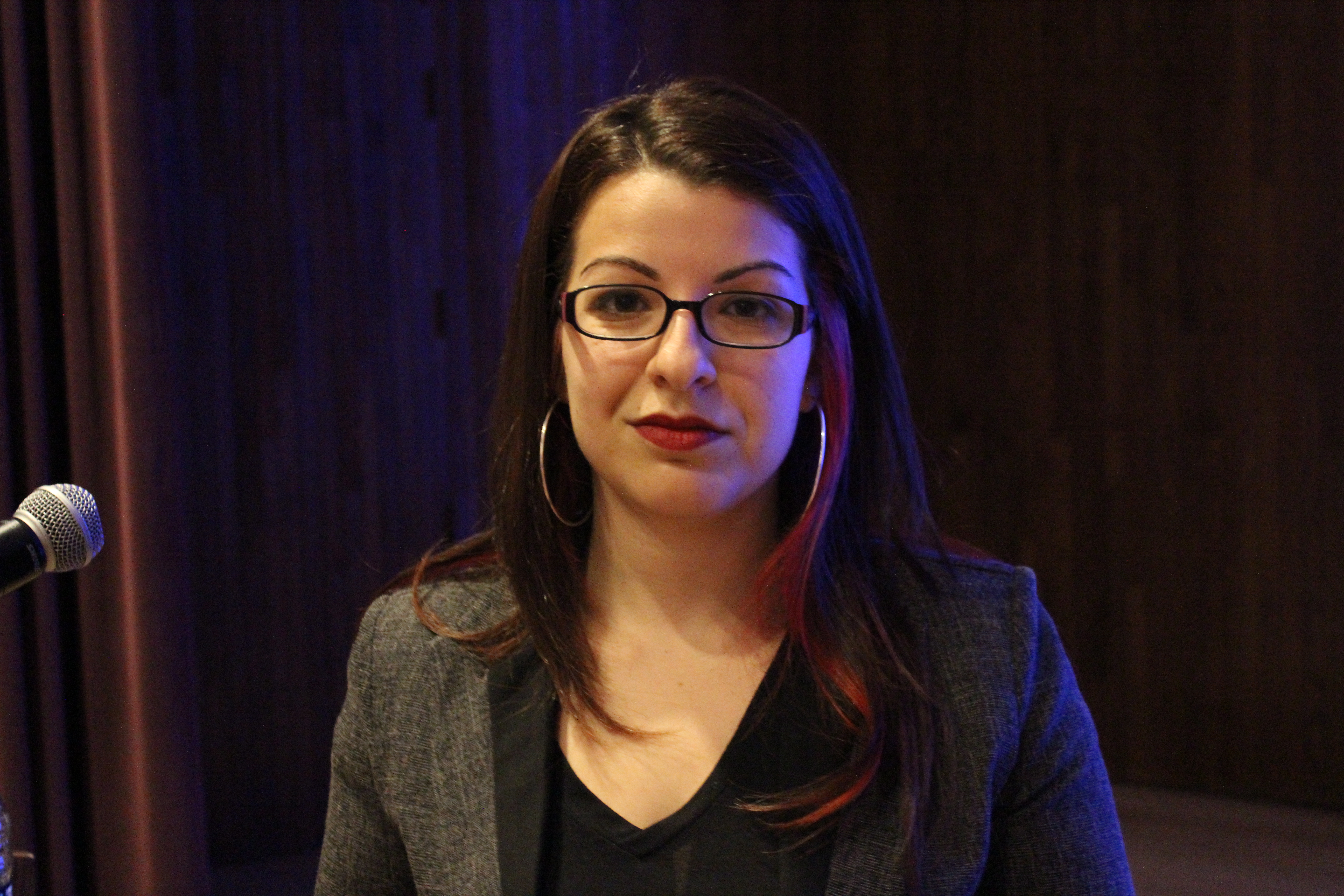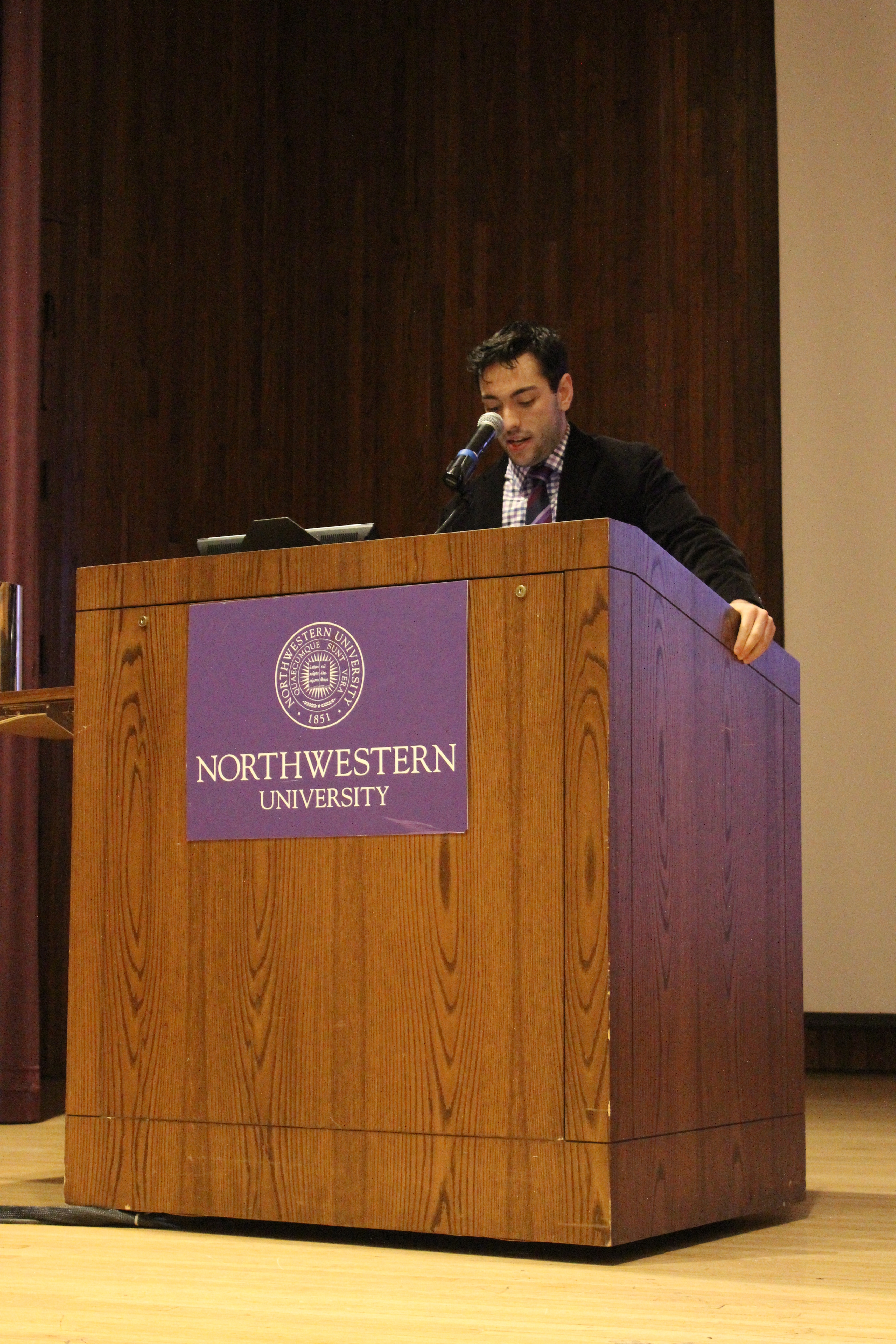With her soft voice, strong words and salient feminist critique, Anita Sarkeesian, most notable for her YouTube channel The Feminist Frequency and her “Tropes vs. Women in Video Games” series, preached to diehard gamers and non-fans alike about the shady sexism in the video game universe this Wednesday.
Hosted by the Public Affairs Residential College, the event consisted of a talk titled “8 Things Developers Can Do To Make Games Less Shitty for Girls” followed by a brief, unscripted Q&A. During the event, Sarkeesian showcased examples of games from across generations that exposed many forms of misrepresentation of women – from clothing to diversity to character personality, many games fail to account for an image of women that differs from the standard.
As she continued down her list and critiqued different misrepresentations of women in games, each point elicited snaps and nods of agreement from the audience. Her mention of game developers’ tendency towards “strategic butt covering” costumes for male characters and contrastingly blatant butt displaying outfits for female characters, prompted both laughter and scoffs of disbelief throughout the crowd.
“It seems like sexism is more apparent in [the gaming] sphere,” says Weinberg junior Stephanie Kong, a student that attended the talk. She questioned whether the prevalence of anti-women ideas in gaming is due to “the type of people who game or the anonymity of the Internet” or a number of other sources of misogyny in society.
Sarkeesian believes it is a product of those factors and more. The foundations of sexism in video games, as well as pseudo-movements like Gamergate, are symptomatic of a desire to “defend the status quo of gaming as a male dominated space,” she said.
From objectification of female characters to the exotification of women of color, video games have a long way to go. Throughout the talk, Sarkeesian reiterated her simultaneous love and critique of media. As a longtime fan of games herself, she struggled with reconciling being a gamer with the problematic attributes of many video game designs and plotlines.
But, the institution of video games is not reliant on hyper-masculinity. To her, the issue of fair and diverse representations of women goes hand-in-hand with a love of video games. “Using less cliché writing and telling a broader range of stories about a broader range of people isn’t something you should do just because it’s morally right - you should want to do it because it can make games better,” Sarkeesian said.
In fact, much of Sarkeesian’s work now focuses on communicating these intentions with game developers. “I hear from a lot of developers who want to do better and there is a lot of interest from people who want to show broader representations of people,” Sarkeesian answered, in response to a question about how these entrenched ideas are being addressed.
Sarkeesian mentions that a common counterargument to her videos is that the characters in the games choose to act or dress or speak in a certain way, of their own accord. And to that she responded simply: “every creative decision is a conscious one.” For those who enjoy film, music, games or all of the above, media consumers must hold creators and artists accountable for the content they produce. Whether that is by learning to identify insidious schools of thought or refusing to accept flawed depictions of women, becoming a more critical consumer can make pop culture more inclusive – one Lara Croft at a time.





